The challenges of operating a bakery are well known, from the rising price of ingredients to an ongoing skills shortage. But what about when you operate a truly remote bakery? Baking Business spoke to Farina Bakery and Normanton Bakery to find out how they tackle some of the additional difficulties that come with this.
There are a number of challenges that come with operating a regional bakery, from finding – and retaining – qualified staff to varying customer numbers and sourcing quality ingredients. But how do you overcome these if the bakery is truly remote?
One success story to emerge in recent years is that of Farina Bakery.
Known as South Australia’s most remote bakery, Farina Bakery has cemented itself not only as a tourism destination in recent years, but also something of a baking institution.
The historic bakery, located in the abandoned Farina township within the Lake Eyre Basin, opens its doors for just eight weeks each year with the Farina Restoration Group Inc at the helm.
First formed back in 2009, the Farina Restoration Group consists of an army of volunteers who all make the annual trek to Farina to spend a few weeks helping with various projects around the town.
Included in this number is head baker Kerry Storer. With more than five decades of baking experience behind him, Kerry is the operational driving force behind Farina Bakery.
Kerry said work to prepare the underground bakery for operation begins quite far in advance, with the original Scotch wood-fired oven lit up to six days before the first bake so as to ensure it isn’t put under undue stress from heating too quickly.
“The underground baking area is also given a thorough clean prior to commencing baking. Also, the bakery outlet area and museum area are cleaned in preparation for the opening day,” he said.
“The bakery only operates for eight weeks each year as it is staffed by volunteers. They generally stay for two weeks, and work in the bakery on a roster system. It depends on their capacities and what they can do.”
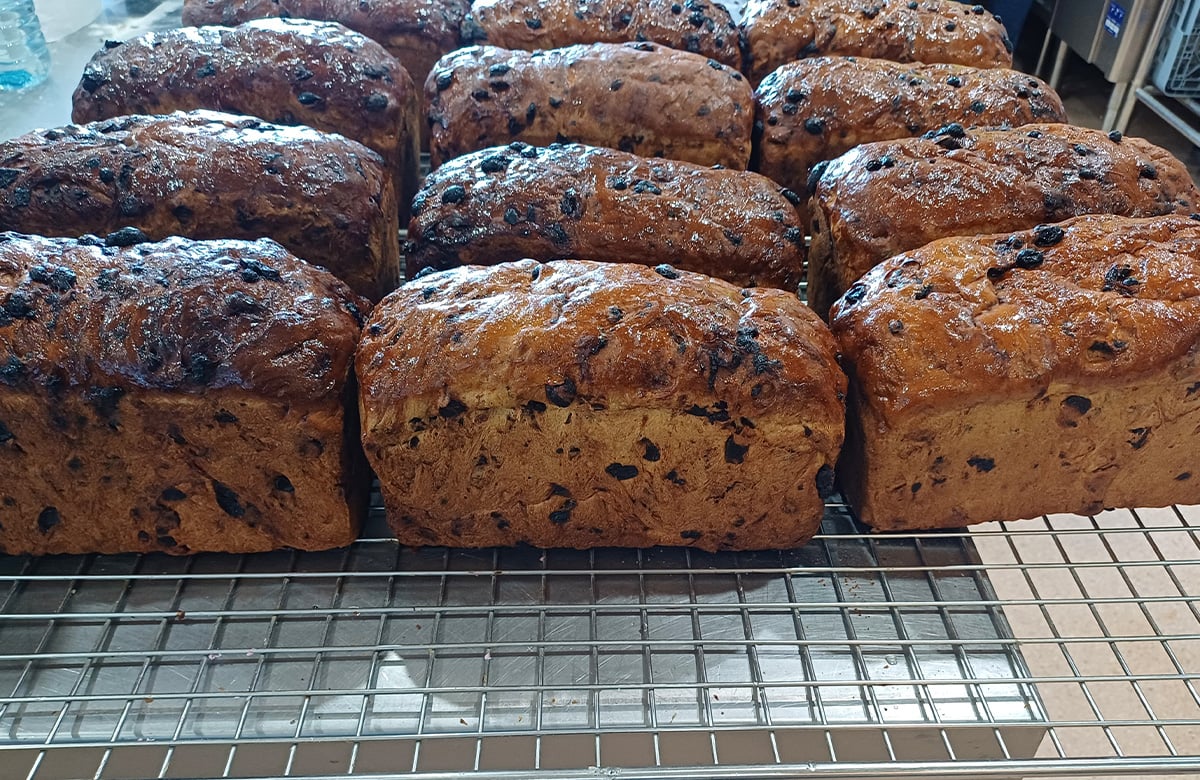
Farina Bakery’s Heavy Fruit Loaves with 500g Assorted Dried Fruits
Baking local, staying local
It goes unsaid that included in this lengthy preparation is the organisation of the initial bakery supplies – all chosen with a strong focus on supporting South Australian businesses – which are then delivered by road freight. An initial delivery of dry goods arrives the week before the bakery opens and then the frozen and cold supplies are delivered on the Tuesday of opening week, with further deliveries arriving weekly.
Although it took a few seasons to really nail down the Farina Bakery product range, and with that the necessary supplies each year, Kerry said the committee now had it down pat. The focus is on producing a traditional bakery range from bread to cream buns, pies, pasties, to sausage rolls, vanilla slice and lamingtons.
“You can’t go to the corner shop if you run out of something, but then you also don’t want to be selling something in the first week and then not having it available later,” he said.
“Our most popular products are vanilla slice, chunky beef bacon & cheese pies, and our famous Heavy Fruit Loaf loaded with Fruit from Mildura. It took a few seasons to get what people want and we found some things we made didn’t sell, so we stopped making certain lines.
“Now if you come in week one you can buy something and if you come in week eight you can buy the same product. We keep it pretty uniform all the way through and it helps with our levels of stock that we have to buy and the supplies that we have to get.”
It’s a passion project for the entire volunteer committee, and Kerry said Farina Bakery’s growing reputation as a tourism destination means the committee now begins planning for the next year almost as soon as they leave the Farina township.
“We’ve got a committee and everyone has their roles. It’s always on the go,” he said.
“Really, we finish one year and we start planning for the next.”
Normanton bakery, located inside the town’s FoodWorks supermarket, is another business that has tackled the challenge of operating a truly remote bakery.
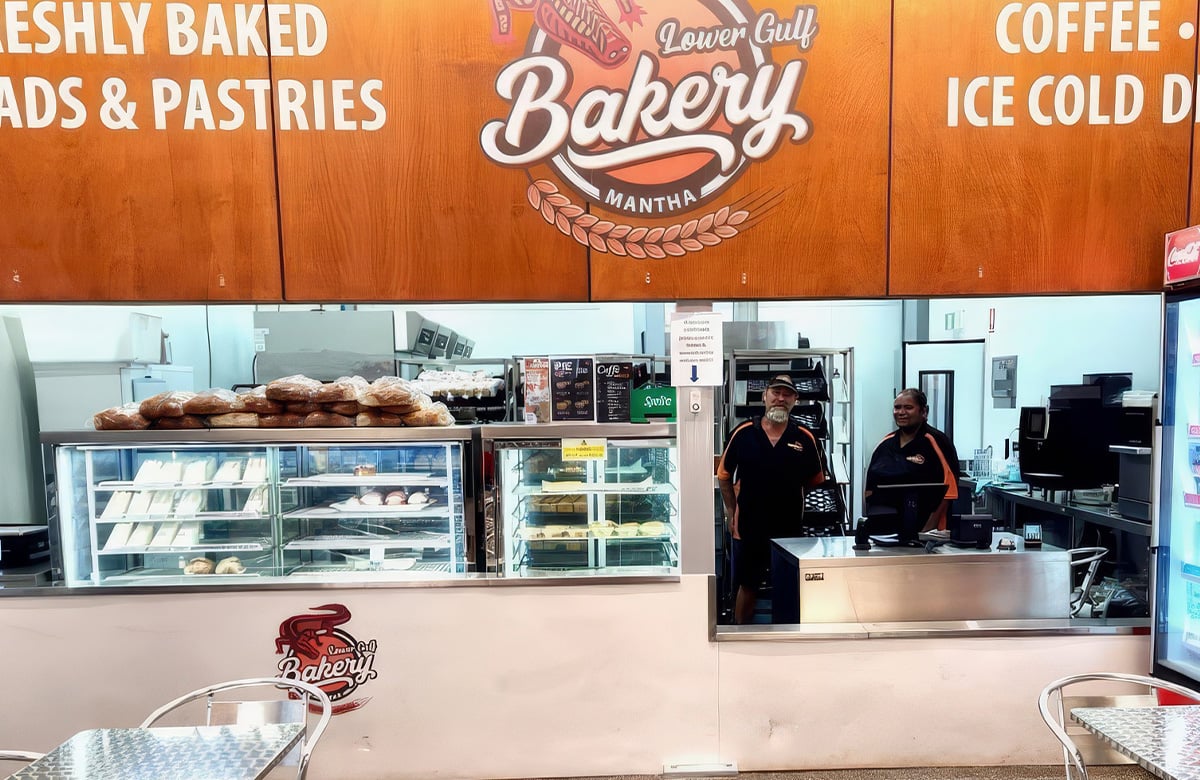
The bakery is located within the Normanton FoodWorks
The challenges of distance
After the bakery in Normanton closed its doors the FoodWorks supermarket, operated by the Gulf Regional Economic Aboriginal Trust (GREAT), stepped in to fill the gap but was faced with having to truck bread in from almost 2000km away, which not only impacted the amount of bread available but also its shelf price.
GREAT business advisor Gene Geedrick said these difficulties, combined with the fact the remote Indigenous community can be isolated due to flooding for up to six weeks each year, made it apparent that a better solution had to be found.
“There were also problems with the power generators, so there are frequent brown outs and black outs. These things combined created a real problem when it came to food security – the supply of fresh food as well as the range, variety and quality. It’s all restricted,” Gene said.
With the supermarket first opening its doors in 2022, Gene said by 2023 the need for better access to fresh bread had become apparent.
“The bread we could get we’d generally run out of – or we’d stock up and freeze it – but you can only store so much frozen bread,” he said.
“We decided to make our own bakery, and then we looked at the complexities of having our own bakery. One of the things that came to us was the need to have a qualified baker. We spoke to a number of bakeries around Australia and they all had experienced issues with staff shortages.
“We consulted widely and one business we spoke to said the way to go would be using frozen dough technology.”
Gene said in a nutshell this solution meant the bakery put in place specially automated ovens complete with provers that can be run by a store employee after a few days of training, effectively ruling out the need for a permanent qualified baker onsite.
Instead, staff can take the frozen dough out of the refrigerator containers and place it on special trays that can be wheeled into the provers, all of which have been pre-timed.
“We set them up so they prove overnight and then we pull them out in the morning and wheel the trays into the oven. Don’t get me wrong, it’s still a semi-skilled operation. We do have a baker who’s qualified and trained and he comes up and trains our staff, but we’re not reliant on a qualified baker remaining in the town,” Gene said.
“We now have cinnamon rolls, crusty buns, white and multigrain bread, fruit loaf – all those types of bread – on offer and it’s fresh bread that we’re able to sell for a good 50 cents cheaper.”
“With this technology we believe we get a better product.

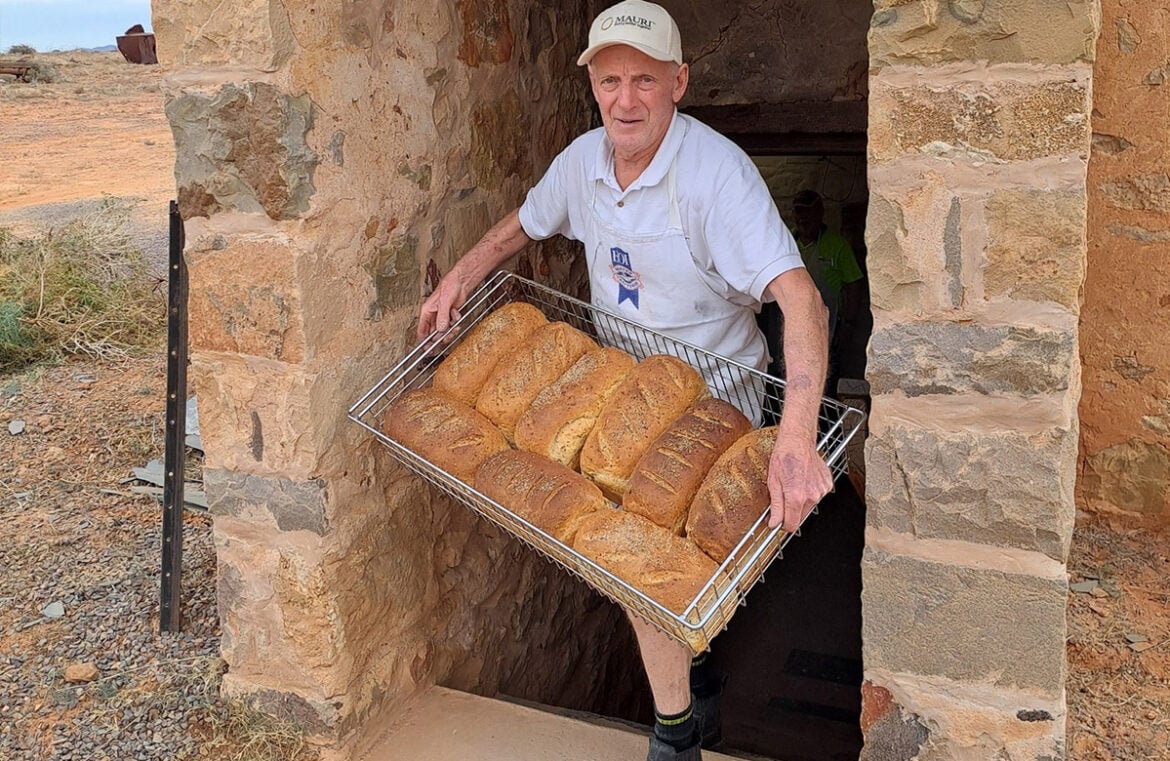
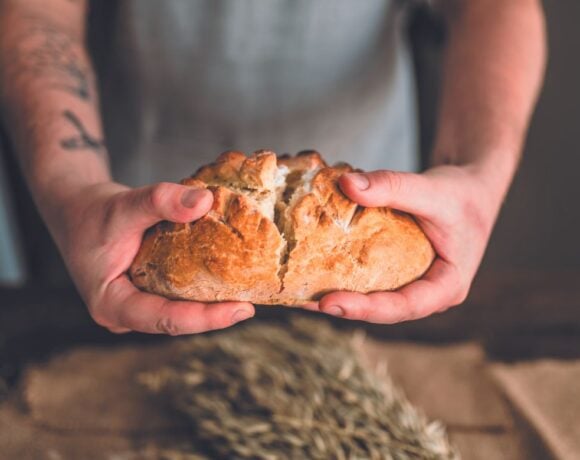
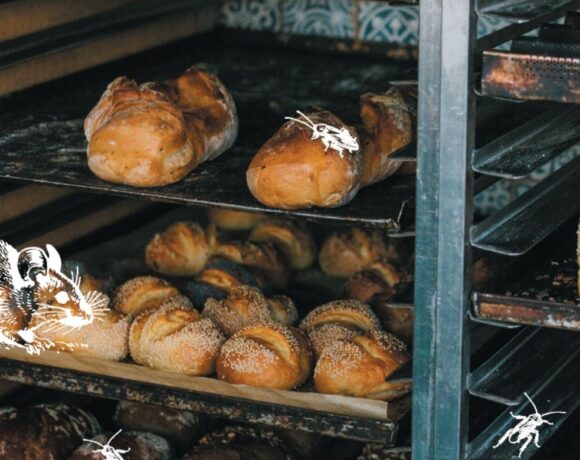


COMMENTS